Too Old to Die Young Now: John Lincoln Wright 1947-2011
“Too old to die young, too young to go, How I ever got this far, the good Lord only knows, I’ve been around the horn and back so many times that now I’ve found, I’m too old to die young now.”
He saw it coming. In his 20’s John had a notion of what would take him out and that inevitably it would have something to do with booze. One of his best lyrics turns on the line:
“I’m one drink closer to heaven. Lord, get me out of this hell.”
He also lived with a stoic foreknowledge that, no matter what he achieved, his life was bound to end in personal failure:
“In 1965 I said I’d never get out alive, that I’d burn myself out before my time… Then the years went by so fast … I’m too old to die young now.”
(Also quoted by Steve Morse in his excellent Boston Globe obituary).
Not that he went through life waiting to die. Far from it: doom was only one of his facets. John the romantic, John the populist, John the news junky, John the Red Sox fan, John the rock impressionist were only a few of the roles that emerged as you got to know him.
But surrounding it all was that vague knowingness about how things would turn out––not exactly prophesy, more like a higher than usual degree of self-appraisal. You might have labeled him “a cynic” were it not for the restless, always searching heart that lay just beneath the crusty exterior. He had it well-hidden though. You never saw it. Instead you saw the other roles that were John Lincoln Wright.
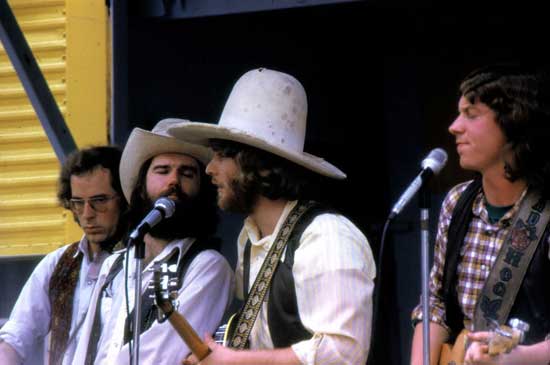
Foremost of these roles, of course, was bandleader. I was a member of the original Sour Mash Boys lineup, but through the years, as Steve Morse mentions, over 100 players, including 2 women, were at one time or another members of the band.
Unlike many of us who passed through John’s world then moved on, John knew that for better or worse he was here to stay. Smart country music and the poetry of the American song would consume him the rest of his life. As a lifer he served faithfully for over 40 years. Band members came and went but the constant was always John Lincoln Wright.
In all honesty, it wasn’t always easy to work for John. For instance, it was hard to get a direct “yes” or “no” out of him. If he wanted you to do something, you might hear about it from someone else, or it would simply be “understood.” Whatever the case, you’d find yourself doing it.
He was a complex, paradoxical man. To those he didn’t know—or maybe knew too well—he could be distant. Push him too hard and he could get prickly. If he was sometimes evasive, it only masked the fact that he could be easily hurt, and often was. Open your heart to him and he was generous and warm.
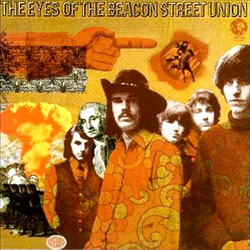 He had a legion of die hard fans and he was always respectful and courteous to them: he knew very well that fans make you and they can just as easily break you. His first band, 60s acid-rockers The Beacon Street Union, had crashed hard in the wake of the infamous Bosstown Sound disaster, MGM Records’ attempt to exploit the psychedelic “San Francisco Sound” in Boston. (The promotion failed when right-wing abstainer Mike Curb took over MGM and killed it). John went down along with it, but the fans who had followed him then helped him climb climb back up again, and he didn’t forget it.
He had a legion of die hard fans and he was always respectful and courteous to them: he knew very well that fans make you and they can just as easily break you. His first band, 60s acid-rockers The Beacon Street Union, had crashed hard in the wake of the infamous Bosstown Sound disaster, MGM Records’ attempt to exploit the psychedelic “San Francisco Sound” in Boston. (The promotion failed when right-wing abstainer Mike Curb took over MGM and killed it). John went down along with it, but the fans who had followed him then helped him climb climb back up again, and he didn’t forget it.
The last time I saw John, a few years ago, you could say by all normal standards it was all over and everything had ended more or less as he predicted. He had declared personal bankruptcy. His decades-long marriage to Vicki had gone south and he no longer lived in the house on Valentine Street. I wanted to see him, but I had no idea how to find him.
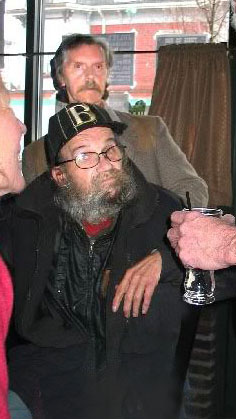 I got a tip from an old bandmate: he drank every afternoon at the Cantab Lounge in Central Square. From across Mass Avenue I saw some old dudes in front of the bar. I was about to ask if Lincoln was inside today when one of them wheeled around – John himself, grizzled-chinned, almost unrecognizable in a ratty old Red Sox cap. He looked me over for a moment, with his gruff street wariness, then his face lit up with recognition and he threw his arms around me in a warm, old-man embrace.
I got a tip from an old bandmate: he drank every afternoon at the Cantab Lounge in Central Square. From across Mass Avenue I saw some old dudes in front of the bar. I was about to ask if Lincoln was inside today when one of them wheeled around – John himself, grizzled-chinned, almost unrecognizable in a ratty old Red Sox cap. He looked me over for a moment, with his gruff street wariness, then his face lit up with recognition and he threw his arms around me in a warm, old-man embrace.
We spent the rest of the afternoon drinking in the bar, and I have to say: he seemed relaxed, content with himself in a way that was new to me. I suppose the failure he feared all his life had finally arrived, and maybe it wasn’t so bad. He had cut ties with everything and had no more responsibilities. All the failing was done. His days were simple, and all that remained now was to roll out and live each one, on the small stipend his ex-wife Vickie provided him. Destiny had come and gone. He had nothing more to fear.
Some wondered why he let everything go in his last years. It all went—performing, writing, eating, everything but drinking. He became almost literally one of the old Central Square street characters he used to write about (he’d always, I noticed, seemed comfortable around them, even in the early days). Who will ever know, but I offer a theory:
John spent his whole productive life in a well-concealed struggle with pain. He once told me he was dogged by an almost phobic fear of failure. Not as a performer––that came as naturally to him as breathing––but in life. When you live in pain, you can try to drink it away (and he tried hard) or you can slide out from under it and break free. Looking back I realize he admired street people because they were truly free. Whatever they once had been, they had bailed on it, left that struggle behind, and now they lived day to day, off the map, nobody’s concern but their own, totally free. In one of my favorite of his songs, “Horizon Line,” he wrote:
“You’re here when it happens, there when it’s gone. Everybody said you could be someone.
“Out on the prairie, side of the road, ain’t nothing but you and a telephone pole.”
He went on:
“As fine a time as I could find or borrow, these wide eyed hours heading off toward tomorrow.
“Hop on my back and pack up all your sorrows. Off like a thief to where there’s no grief or woe.”
John sang about freedom, but as long as he was playing a game he believed he couldn’t win, he knew he would never be free. Not like them. Too many people depended on him in too many ways. So he sought out freedom on the only terms he knew, first as a creative artist––a song poet in the classic American vein, a generous, dynamic performer––then as a heavy drinking “lost soul.”
Personally, John was a hugely important figure in my life. I often say, and it’s true, that I simply can’t imagine my life without John in it. And I’m sure I’m not the only one who’d say that. Some people dream so large they build their dream into the actual world, and if you’re fortunate enough to be invited in, your own dreams become infused and empowered by theirs, and your piece of the world is made bigger by that much. John was one of those people.
At the end of a life like his, there’s always the official summing up: what does he leave us? What can you say about his life that places in in the context of history. I’d say his respectful, authentic approach to the traditional, plus his undeniably solid rock credentials, made him the perfect man to popularize kick-ass country rock for several generations of Boston area live music fans. But beyond that, more than any other single influence, John Lincoln Wright and the Sour Mash Boys brought modern country music to New England, and along the way, gave a lot of pleasure to a lot of people. That’s not a bad way to have spent a life.
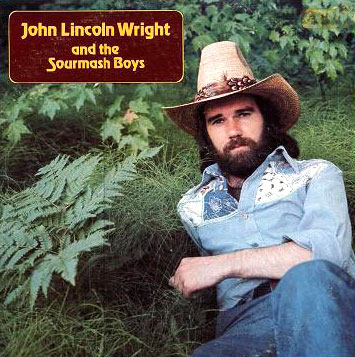

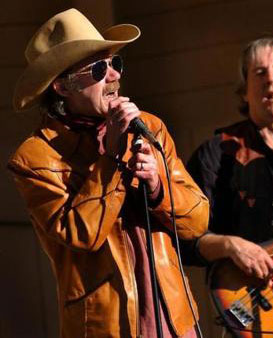

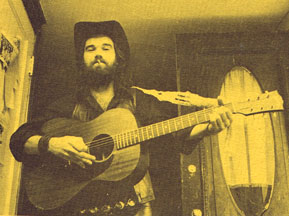
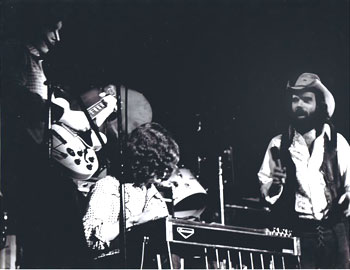
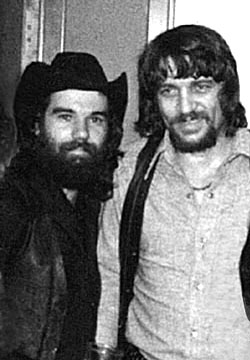


{ 4 comments… read them below or add one }
Hi,
I was thinking of JLW today and found your piece on him. Thanks. My husband and I joked that in the ’70s we were his groupies. My husband asked him to do a benefit for the theater he was part of at the time – benefit was a bust but we got to know John after that – he even stayed at our house in Teaneck once when he was playing in the city. loved his music and his kindness to us. My husband also passed away 8 years ago and like to think about the great times we had and part of it was JLW.
Bravo. Not being an insider but a fan, I only saw the warm, respectful, and gentle side of John. Keep it short, sweet and lively, have another Ballantine Ale and it’s back to the stage. But it’s sad that he willingly cashed in his chips too soon – in life, before death. But as you say, it was the music that was his legacy. We remember those great nights of Too Much Water, a Tombstone Every Mile, and Brain Cloudy Blues – thanks John!
I had a dream of a man today who came to me in my dreams.He had a cowboy hat on and said”hello my name is John Lincoln White” That is what I thought I heard I googled the name after I woke up because I never heard of the name before.But its Wright not White.But his pic is the same man I saw in my sleep..so does anyone know when he said his last name did it sound as if he was saying white?I really want to know.
Angel, I never heard him say it that way. What’s interesting is (a) he appeared in your dream when you had never seen or heard of him before–that’s amazing; and (b) that your dream-mind turned “Wright” into “White.” That must mean something personal to you. Maybe some good dream analysis could help you figure that out.